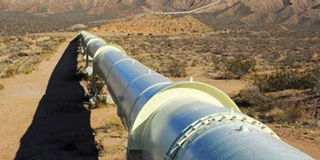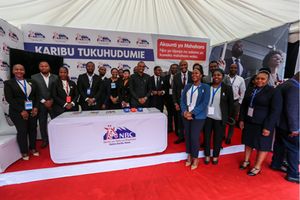Over 80 foreign firms eye oil pipeline opportunities

What you need to know:
- Sources familiar with the project told The Citizen that representatives of the foreign companies were holding talks with their Tanzanian counterparts on how they could carve out deals before the $3.55 billion (Sh7.81 trillion) project commenced.
Dar es Salaam. At least 80 foreign companies are seeking partnerships with local firms in the execution of the Uganda-Tanzania oil pipeline project.
Sources familiar with the project told The Citizen that representatives of the foreign companies were holding talks with their Tanzanian counterparts on how they could carve out deals before the $3.55 billion (Sh7.81 trillion) project commenced.
“We have potential investors from Malaysia, the UK, Italy, India, France, Argentina, the US, Brazil and the UAE, among other countries. They are here to look into the possibility of getting into joint ventures with local companies in various fields in the execution of the project,” the Association of Tanzania Oil and Gas Service Providers (ATOGS) co-founder and vice chairman, Mr Abdulsamad Abdulrahim, said on Monday.
The project is expected to create about 10,000 direct jobs in the two countries, and local suppliers also stand to reap big through the provision of technical and non-technical services, including construction, engineering, procurement and logistics.
They are also seeking to provide indirect services such as accommodation, transport, facilities management, operation and maintenance, insurance, security, catering and financial and legal advice. “The project requires companies to meet certain minimum standards, and the foreign companies have both experience and financial resources. That is why we see their coming as an opportunity that should not be wasted by locals,” Mr Abdulrahim said.
According to National Economic Empowerment Council executive secretary Beng’i Issa, the government is collaborating with the Tanzania Private Sector Foundation to ensure that Tanzanians benefit from the project through securing both direct and indirect employment.
“We’ll focus on community areas, districts and small towns where the pipeline will pass through. We’ll work with local government authorities so that they prepare communities to participate in the project,” she said. A foreign investor from France, who asked for anonymity because his company was still in the early stages of negotiating with a potential local partner, said the project offered an opportunity for transfer of skills to Tanzanians.
“The director of the (local) company has been training people both inside and outside the country, but when we approached him for partnership we were surprised to learn that he did not know what to do to grab opportunities that will be presented by the pipeline project,” he said, adding that his company could enter into partnership with a local welding firm.
Foreign firms are flocking to the country at a time the project has moved closer to commencement following the completion of a key engineering exercise.
The company which undertook the work, Gulf Interstate Engineering, said in Dar es Salaam on Monday that it completed the front end engineering design (Feed) early this month, paving way for the project developers to make the final investment decision (Fid).
Feed entails basic engineering conducted after completion of a conceptual design or feasibility study. At this stage – before the start of engineering, procurement and construction (EPC) – various studies are carried out to identify and address technical issues and estimate the investment cost.




